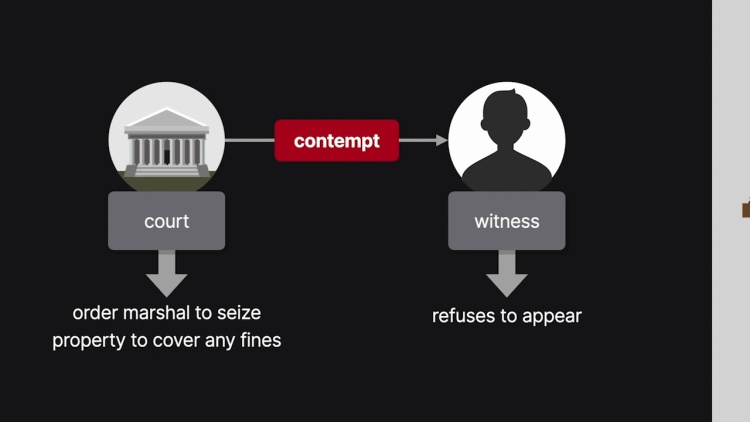Blackmer v. United States
United States Supreme Court
284 U.S. 421 (1932)
- Written by Megan Petersen, JD
Facts
Harry M. Blackmer (defendant) is a United States citizen but a resident of Paris, France. The United States government (plaintiff) issued two subpoenas requesting Blackmer appear as a witness on its behalf at a criminal trial. Blackmer failed to appear, and two separate contempt actions were instituted against him in the Supreme Court of the District of Columbia. The contempt actions were based on a United States statute which provides that “whenever the attendance at the trial of a criminal action of a witness abroad, who is a citizen of the United States or domiciled therein, is desired by the Attorney General, or any assistant or district attorney acting under him, the judge of the court in which the action is pending may order a subpoena to issue, to be addressed to a consul of the United States and to be served by him personally upon the witness with a tender of traveling expenses.” Additionally, upon issuance of the subpoena and failure of the witness to appear, the court may issue an order requiring the witness to show cause why he should not be punished for contempt. Once the order is issued, the court may seize the property of the witness to be held by the United States to satisfy any judgment which might be rendered against the witness in the proceeding. Service is affected through both personal service on the witness and through publication in a newspaper of general circulation in the district where the court is sitting. If, after a hearing, the charge against the witness is sustained, the court may find the witness guilty of contempt and impose upon him a fine to be satisfied by the seized property. Blackmer was found guilty of contempt on both counts, and a fine of $30,000 was imposed in both cases. The fine was to be satisfied out of Blackmer’s property which had been seized by the court. On appeal, Blackmer objected to the statute supporting his contempt convictions on the ground that it violated the Fifth Amendment to the United States Constitution. Blackmer stated five arguments in support of this contention. Most notably, he argued that the statute did not comply with due process requirements under the United States Constitution. The court of appeals affirmed the contempt decrees, and the United States Supreme Court granted certiorari.
Rule of Law
Issue
Holding and Reasoning (Hughes, C.J.)
What to do next…
Here's why 907,000 law students have relied on our case briefs:
- Written by law professors and practitioners, not other law students. 47,100 briefs, keyed to 996 casebooks. Top-notch customer support.
- The right amount of information, includes the facts, issues, rule of law, holding and reasoning, and any concurrences and dissents.
- Access in your classes, works on your mobile and tablet. Massive library of related video lessons and high quality multiple-choice questions.
- Easy to use, uniform format for every case brief. Written in plain English, not in legalese. Our briefs summarize and simplify; they don’t just repeat the court’s language.







